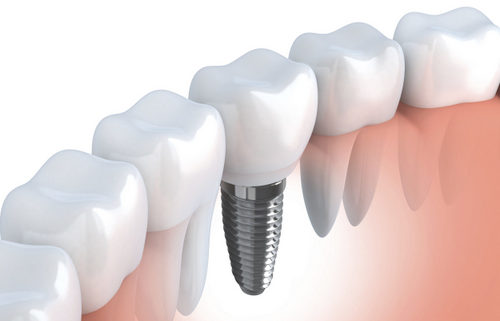Can my body reject my dental implant
When you lose a tooth as an adult, there are several options available to you for tooth replacement; removable dentures, fixed bridges, and dental implants. Dental implants are the best option, as they’re a permanent solution that’s fully functional. They have a very high success rate, as they are made with titanium – the most biologically compatible of all metals. Can your body reject your dental implant? Yes, although it’s far more likely that your implant failure is due to one of the following.
Failed Osseointegration
This means that your jaw did not take to the implant. Osseointegration is a term that describes the development of a connection between an artificial implant and the bone. Broken into its root Greek, the word literally means bone integration. This is determined by the implant either falling out, being excessively loose, or has shifted more than 1 mm after a year. Dental implants must be placed into a healthy jaw. There should be enough bone density and volume in order for the implant to fully osseointegrate. In some cases, a bone graft or a sinus lift is necessary for a dental implant, in order to create more bone mass.
Infection (Peri-Implantitis)
As you know, the human mouth is loaded with bacteria, and not all of it is good. With any surgery, and having a dental implant installed is a surgery, there is a risk of infection. The bone and gums around your implant can also be infected by improper dental hygiene, or if any dental cement from the implant gets caught in the gums. In rare cases, the infection can be treated and the implant left alone. However, if infection occurs, it’s most likely that the implant will have to be removed.
Teeth grinding
Grinding your teeth, normally very harmful anyway, can be devastating to dental implants (especially new ones). It takes a long time for bone to heal, as anyone who has ever broken a limb can tell you. Since dental implants are drilled into the bone, the jaw has to recover, and create new bone mass around the implant to hold it in place. Grinding your teeth can shift the implant, or wear it down. If you are a habitual teeth grinder, it would be wise to wear a mouthpiece at night in order to protect your dental implant.
These are just a few of the ways a dental implant can fail. In most cases, your body doesn’t reject the implant. There are other factors that have caused your implant to fail. Have more questions? Contact Dr. Chauvin’s office!




Thanks for the informative post.